UAE Expresses Concern Over Iran's Nuclear Program
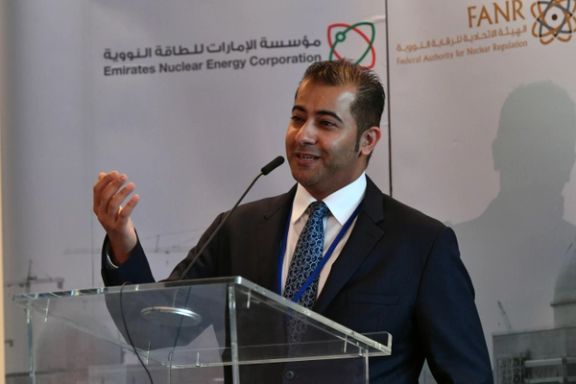
In a rare statement, the United Arab Emirates has voiced "profound concern" regarding Iran's nuclear program and called on Tehran to cooperate fully with United Nations inspectors.

In a rare statement, the United Arab Emirates has voiced "profound concern" regarding Iran's nuclear program and called on Tehran to cooperate fully with United Nations inspectors.
Hamad Alkaabi, the UAE's permanent representative to the UN's International Atomic Energy Agency (IAEA), stressed that Iran's uranium enrichment activities lacked "realistic peaceful uses."
The UAE's expression of concern regarding Iran's nuclear activities is particularly significant given its recent efforts to improve relations with Tehran, including the exchange of ambassadors and an official invitation for the UAE's head of state to visit Iran.
Addressing a non-proliferation meeting in Vienna, Alkaabi emphasized the importance of Iran addressing the concerns raised by the IAEA. He urged Iran to take concrete steps to "build confidence in the peaceful intent" of its nuclear activities. The call comes against the backdrop of Iran's enrichment and stockpiling of uranium, as well as its installation of new centrifuges, following the US withdrawal from the 2015 Joint Comprehensive Plan of Action (JCPOA).
Alkaabi pointed out that Iran's uranium enrichment to levels as high as 60 percent, well above the 3.67 percent cap stipulated by the JCPOA, is a cause for alarm and highlighted that such activities were not consistent with the agreement, thus raising serious concerns for the UAE, which is just a matter of miles away from Iran.
Adding to the apprehensions, Norway has also drawn attention to what it terms "noticeably heightened Iranian nuclear expertise." Western diplomats have cautioned that these advancements could have enduring consequences, potentially being irreversible even in the event of a restored agreement.
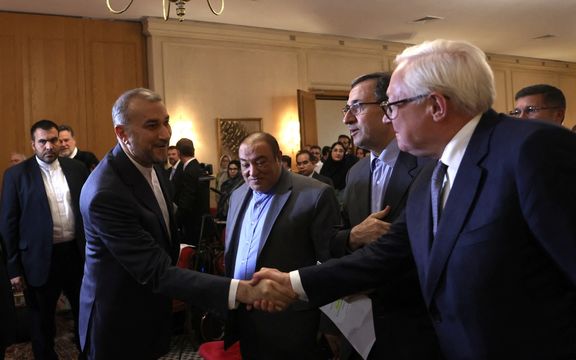
Russia on Tuesday aligned itself with its ally Iran in rejecting Western attempts to maintain sanctions on Iran despite the collapse of the 2015 JCPOA nuclear deal.
After a meeting between respective deputy foreign ministers in Tehran, Russia's foreign ministry said Moscow and Tehran were unanimous in believing that the failure to implement the deal stemmed from the "erroneous policy of 'maximum pressure' pursued by the United States and those who think similarly".
Russia is one of the participants in the Joint Comprehensive Plan of Action (JCPOA), the accord signed between world powers and Iran to restrict Tehran’s controversial nuclear program, especially limiting its uranium enrichment.
Then-US president Donald Trump quit the deal in 2018, imposing economic sanctions, and Iran's relations with the West have been deteriorating ever since, as it has accelerated its nuclear program. Tehran has been enriching uranium to 60-percent purity since 2021 and has accumulated enough fissile material for at least two nuclear weapons.
But Russia, which signed the deal alongside the US, China, Britain, France, Germany and the European Union, has been deepening ties with Iran since its invasion of Ukraine. Iran has supplied hundreds of kamikaze Shahed drones to Russia that have been widely used to attack civilian and infrastructure targets in Ukraine.
The war, which Russia calls a "special military operation", has driven its own relations with the West to their lowest level in decades, bringing on Western sanctions that has isolated Russia economically and politically. Iran is in a similar if not worse situation.
Reports in June indicated that European diplomats had informed Iran they planned to join the US in retaining sanctions on Iran's ballistic missile program that are set to expire in October under the nuclear deal.
They gave three reasons: Russia's use of Iranian drones against Ukraine; the possibility that Iran might transfer ballistic missiles to Russia; and depriving Iran of the benefits of the nuclear deal, which it violated after the US withdrew.
Russian Deputy Foreign Minister Sergei Ryabkov met Iranian counterparts Ali Bagheri-Kani and Reza Najafi.
Russia's foreign ministry said the meeting had emphasized "the unacceptability of any attempts on the part of the West to impose some new schemes and approaches to solving problems related to the JCPOA, which imply damage to legitimate and mutually beneficial Russian-Iranian cooperation in various fields".
It said there was still "no reasonable alternative" to implementing the JCPOA, as approved by the UN Security Council.
In recent months, many media reports have spoken of secret diplomatic efforts to control the tensions with Iran, including releasing Tehran’s frozen funds from countries such as Iraq and South Korea in return for a pledge by Iran not to further increase its uranium enrichment to weapons grade levels, which is 90-percent purity.
So far, except a US sanctions waiver to Iraq for a partial release of funds, no developments have taken place signaling an agreement. Parallel to discussions about Iran’s nuclear program, the US is also trying to secure the release of several American dual-nationals held hostage in Iran. Apparently, the release of $7 billion held in South Korea is the price for releasing the prisoners. But a new complication has emerged with reports that while talks were taking place, Tehran arrested two more individuals, bringing the total to five hostages.
Observers and media in Iran have accused Russia of using the nuclear issue for its own leverage with the West. Multilateral talks that began in Vienna in April 2021, with the Biden administration’s new policy of reviving the JCPOA, failed immediately after Russia’s attack on Ukraine.
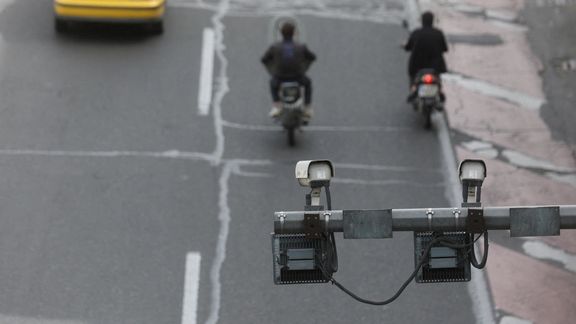
The scandal surrounding the German corporation Bosch’s delivery of surveillance technology to Iran has expanded to include Denmark, Sweden, the Netherlands and China.
Germany’s government and the country’s Bosch corporation are facing heavy criticism after Iran International reported on Monday that the engineering giant Bosch sold surveillance equipment to Iran. Germany’s ARD first revealed the alleged Bosch impropriety.
The United States sanctioned the Chinese company Tiandy last December for supplying video surveillance equipment to Iran and in January the European Union imposed sanctions on a firm that represents Tiandy in Iran.
Iranian activists told the German news outlet that the Danish security company Milestone Systems delivered video analysis software to Iran. Milestone told the outlet that it sold its software to Iran until 2019. The German news organization said Milestone Systems provided the video management software XProtect, an open platform that can be used for various purposes, to Iran.
The Danish company’s website states that XProtect can also be used to compare faces. ARD wrote “Milestone’s software can be combined with surveillance cameras from different manufacturers -- including cameras from Bosch.”
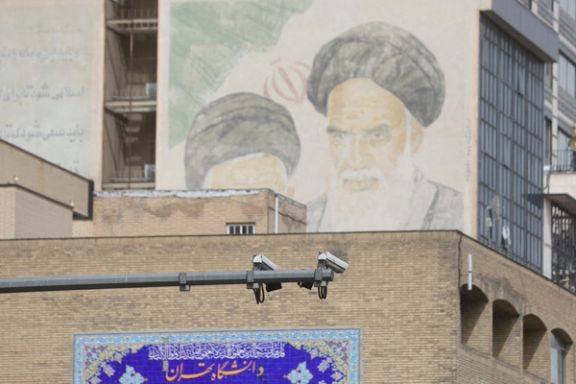
According to Iranian activists, the clerical regime also uses cameras from Sweden and the Netherlands. The companies from Sweden and Holland were not named.
Iran International has learned that Germany’s foreign ministry is referring press queries to Bosch. According to a Bosch statement to ARD, the engineering company sold 8,000 security cameras between 2016 and 2018 to Iran. However, Bosch claims its cameras cannot be used for fully automatic facial recognition.
Germany’s foreign ministry remains mum on the controversial sale of Bosch security cameras to Iran’s regime that can be used to track protesters and women who defy the mandatory hijab.
According to sources, Germany’s foreign ministry is punting media questions to government website information about its export sanctions imposed on Iran and to information about German trade with Iran’s regime being at a historic law.
It is unclear why Germany’s export control agency green-lighted the Bosch sale of mass surveillance technology to Iran’s regime.
Iran International reached out to numerous Bosch spokespeople, including its communication head, Christof Ehrhart, and Natalie Kuzhim, who is responsible for the Middle East. Bosch refused to answer a detailed Iran International press query about the corporation’s alleged misconduct.
Iran International learned that Germany’s foreign ministry has pointed to a diplomatic statement on X, formerly known as Twitter, about Iran’s new crackdown on women.
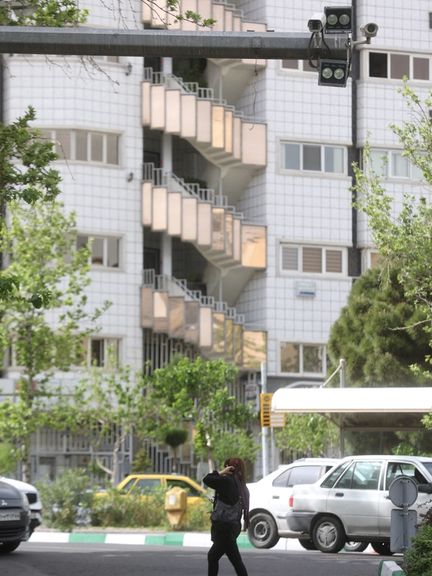
Tobias Tunkel, Director of Middle East and North Africa for the German foreign ministry,wrote on August 1 on X: “Iran’s new so-called ‘hijab-and-chastity’ legal draft effectively aims to ban unveiled women from public life. If passed into law, it would further exacerbate the systemic oppression against women and girls in Iran. #WomensRightsAreHumanRights.”
Tunkel’s message on X received a mere 3 retweets and 5 likes as of Monday evening. Germany’s foreign minister, Annalena Baerbock, claims she is promoting a “feminist foreign policy.” Baerbock has refused to classify Iran’s Islamic Revolutionary Guard Corps (IRGC) as a foreign terrorist organization.
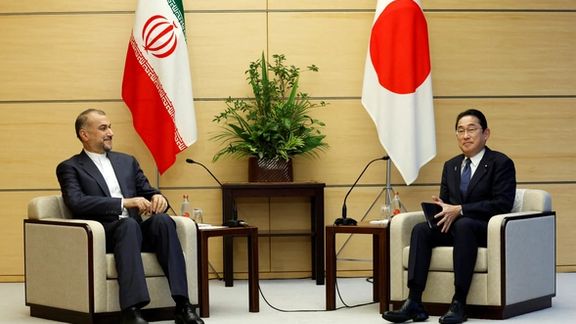
Iranian Foreign Minister Hossein Amir-Abdollahian visited Japan on Monday as a possible move to cajole Tokyo into releasing its $3 billion frozen in banks there.
Amir-Abdollahian, the first Iranian foreign minister to visit Japan since Iranian President Ebrahim Raisi took office in August 2021, met with his counterpart Yoshimasa Hayashi, Japanese Prime Minister Fumio Kishida and Health, Labour and Welfare Minister Katsunobu Katō on Monday.
The readout from his meetings did not mention any talks about Iran’s funds mainly from exports of oil frozen due to US sanctions, but Iranian Foreign Ministry spokesman Nasser Kanaani said earlier in the day that following up the issue was on the minister’s agenda during his trip.
Amir-Abdollahian most likely raised the issue of the funds, as Tehran is also pressuring South Korea to release $7 billion frozen by two Seoul banks. Iran has tens of billions of dollars worth of funds in foreign banks that it cannot access because of US sanctions. The funds are mostly kept in banks in South Korea, Iraq, China, Japan and India where Iran is owed for shipments of crude and other oil products that took place before the United States pulled out of the 2015 nuclear deal and re-imposed full energy sanctions on Tehran in 2018 and 2019.
Kanani emphasized Monday that “We will continue to follow up on the issue of unfreezing Iranian funds held in various countries, as we did before,” adding that the issue has been raised at different levels, such as during a meeting on the sidelines of the 77th session of the United Nations General Assembly in New York last year when Raisi and Kishida discussed the matter. He went on to say that the Japanese government has repeatedly announced its readiness to repatriate the frozen assets and is making efforts to make this happen.

A lot of recent reports and statements point to an interim deal with the possible release of regime funds in exchange for several US citizens held hostage in Iran and a freeze in Iran's nuclear program. Both the nuclear talks and the prisoner release talks have not succeeded in making meaningful progress. However, US officials say that efforts to secure the release of four Americans continue.
Japan – which holds this year's presidency of the Group of Seven nations – may seek to reduce Iran’s tension with the West to facilitate its dealings with Tehran; the most pressing issue is perhaps Tehran’s military support for Moscow’s invasion of Ukraine, deemed a threat to Europe.
According to the readout of Amir-Abdollahian's meeting with his Japanese counterpart, apart from the usual calls for bolstering bilateral relations “in fields such as medical, environment and disaster risk reduction,” the most important issue discussed was Iran’s supply of drones and missiles for the Russian war on Ukraine.
As was reported before the visit, Japan urged Iran not to provide Russia with weapons for its war against Ukraine, with Foreign Minister Hayashi calling on Tehran “to respond in a constructive manner.” The two agreed to continue "close communication" over issues affecting the Middle East, Japan's Foreign Ministry said. It also said the ministers exchanged “frank views” on the latest developments surrounding Iran’s nuclear issue.
The Japanese diplomat stated that Tokyo has consistently supported the Joint Comprehensive Plan of Action (JCPOA) and is “seriously concerned about the expansion of Iran’s nuclear activities,” calling on Iran to take constructive measures including the full and unconditional cooperation under the latest joint statement between Iran and the International Atomic Energy Agency (IAEA).
Between 2006 and 2015, Tokyo fully supported the four UN sanctions resolutions designed to prevent the regime from developing nuclear weapons. Japan also complied with US sanctions reimposed by the Trump administration in 2018, which sought to eliminate all Iran’s oil exports.
Amir-Abdollahian explained that Iran is pursuing the restoration of the JCPOA through negotiations, and expressed his appreciation for Japan’s diplomatic efforts, noting that Iran seeks to continue close communication with Japan on the matter.
Later in the day, Amir-Abdollahian held a press conference in the Japanese capital, where he used it as an opportunity to further deny the extent of Iran’s involvement in the Russian invasion, calling claims “completely wrong and incorrect,” and instead blaming the conflict on the US-led NATO military alliance and its provocations, in spite of troves of evidence to the contrary.
“We consider NATO and its provocations among the root causes of the war and crisis. We continue our efforts to stop the war and make the parties focus on a political solution,” he said, claiming that “We have provided no parties [to the war] with drones for use in Ukraine.”
His remarks came just a day after Russia used 27 Iranian-made drones and 30 missiles to attack large swaths of Ukraine. Ukrainian officials said all 27 Shahed 136 and 131 drones were shot down by air defenses but some of the missiles fired from the Black Sea and the Caspian region got through.
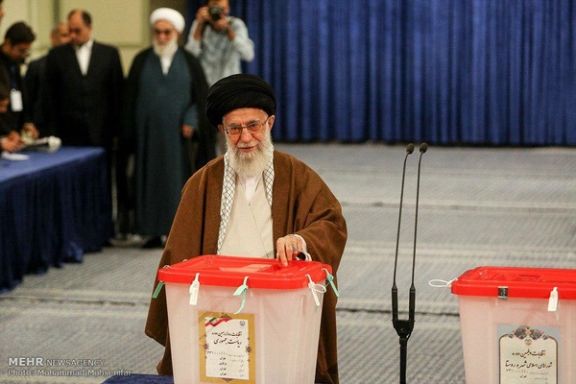
Tens of public figures in Iran have expressed concern in a statement that the upcoming parliamentary elections have been taken hostage by hardliners and security organs.
The statement released Sunday addressed the Iranian nation as "the true owners of this country and its government," and maintained that "the rulers have no special privilege other thanrepresenting and serving the people."
The statement has been posted on Telegram messaging app in an account that belongs to Saham News, a media outlet that represented reformist figure Mehdi Karrubi, a former parliamentary speaker and presidential candidate.
The political activists, writers and civil rights defenders stated that the elections in Iran have been hostage to the "arbitrary supervision" of the Guardian Council, a body that operates under the direct supervision of Supreme Leader Ali Khamenei and vets the candidates based on their loyalty to him.
They also complained about the intervention of security and intelligence organizations in the election process. According to the statement, the worst examples took place in the 2020 parliamentary elections and the presidential election in 2021 which brought Ebrahim Raisi to power and packed the parliament with hardliners.
The activists also charged that the Assembly of Experts whose members are chosen based on the same kind of vetting by the Guardian Council lacks the independence and capability to supervise the Supreme Leader's performance, as the constitution requires.
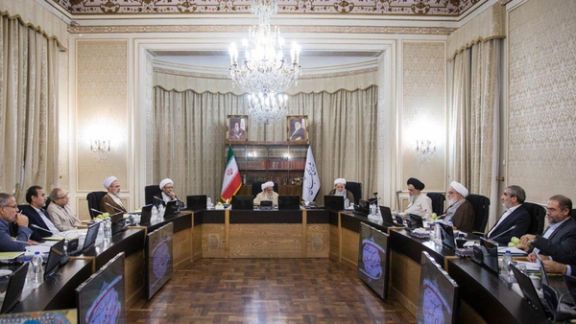
"The Islamic Republic is overwhelmed by a crisis which is the outcome of distancing itself from the ideals of a republic and democracy and its submission to despotism and dictatorship. During the past 44 years, this has led to multiple political, economic and cultural crises as well as leading to poverty, corruption, repression, violations of the citizens' legitimate rights and freedoms," the statement added.
The activists further said: "As a result of this situation, young Iranians have lost their hope in any improvement in this dreadful situation and see only two options before them: Leave the country or continue living in Iran without dignity under the pressure of humiliation."
In another part of the statement, the signatories pointed out that the Islamic Republic has made hijab enforcement a security issue and by doing so has made the situation even more complicated for women who under the pressure feel further humiliated.
But what was even more notable in the statement was a demand to change the regime’s anti-West foreign policy.
"The country's independence has been seriously weakened as a result of a foreign policy devoid of dignity and prudence. This situation has made Iran's foreign policy a playground for Russia's aggressive policies," the statement said, adding that "The Islamic Republic's foreign policy has undermined Iran's national interests and disrupted the balance in its relations with East and West and made the country's progress and development hostage to seriously damaging sanctions."
The activists further pointed out that as a result of this policy despite its anti-imperialistic slogans, the regime has submitted to the humiliating oil for food arrangements and barter trade with underprivileged countries to provide food and medicine.
The signatories to the statement declared that "In such a catastrophic situation that has forced a large part of Iranians and their elites to leave the country for good, holding an election is nothing more than beautifying the regime in a bid to lend it some legitimacy. "We do not believe that such an election is going to lead to any improvement in governance," they insisted.
"What can justify people's participation in the upcoming election in March, is the regime's return to democracy by listening to the people and their elites and bringing about structural reforms in the country. A decision to hold a referendum to change the Constitution is a requirement for that change. Without doing this participation in the election would be a deceit against the country's national interests," the statement concluded.
Centrist politician Faezeh Hashemi, former state TV Chief Mohammad Sarafraz, 1980s militant journalist Isa Saharkhiz, and several cultural figures such as poet Ali Babachahi are among the signatories of the statement.
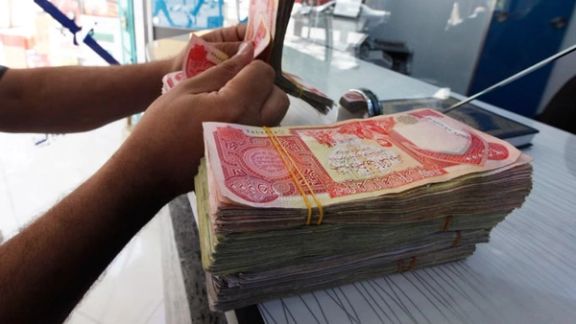
Iran’s Oil Products Exporters Union has reacted to the recent accusations made by an Iraqi MP regarding the smuggling of dollars to Iran through Argentina.
Hamid Hosseini, the spokesperson of the Iranian Oil, Gas, and Petrochemical Products Exporters Union, said Friday that this was a "very serious accusation" and called for accountability from the parliament, parties, and the central bank of Iraq.
Muhammad Nuri Aziz, a member of the Iraqi parliament, said on a television show last week that Iraqi Prime Minister Mohammed Shia al-Sudani and the country’s central bank are aware of the schemes Iran uses to get hold of US dollars it desperately needs amid US sanctions. The lawmaker noted that the smuggling started during Mustafa Al-Kadhimi's term as prime minister and still continues. Without providing any context or details, the Iraqi lawmaker alleged that Iran prints Iraqi dinars in Argentina, exchanges the money to US dollars in Iraq, from where it is smuggled to Iran by trucks.
The Iranian official said warned that given the recent alignments of some Iraqi officials with the United States against Iran, “it appears that these allegations may pave the ground for more serious disputes in the future.”
“This is a style of accusation by Iraqi nationalists and Ba'athists,” he claimed, accusing an Iraqi politician who happened to criticize the Iranian regime, without offering any evidence.
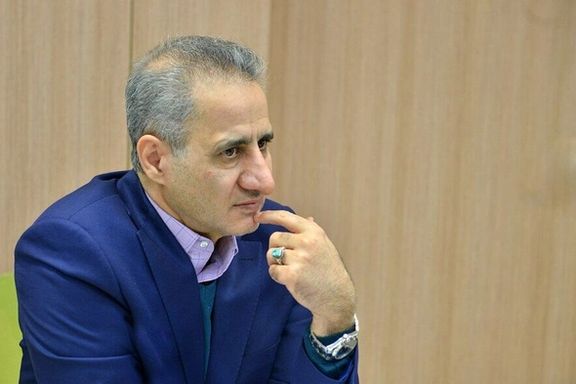
Hosseini emphasized that Iran has been a strong supporter of Iraq, contributing significantly to its security and stability. He urged the Iraqi authorities and parties to address this issue and demanded that the Iranian embassy take action in response to the accusation. “If someone in the Iranian parliament had said such a thing, all of Iraq would have taken a position," he noted.
A source with the Iraqi government told Iran International that following the recent restrictions on Iraqi banks by the US, a portion of the smuggling is being carried out through shell companies, electronic travel cards, online shops, exchange offices, and even suitcases.
Reports about the transfer of $165 million to Iran within less than a month by just one exchange office led authorities to discover dozens of similar cases by other exchange offices.
The credibility of the Iraqi banking system has been tarnished due to the Islamic Republic's influence, and US financial restrictions have tightened on Baghdad because evidently all Iraqi banks have had interactions with the Islamic Republic.
Late in July, 14 Iraqi private banks sanctioned by Washington over helping to siphon US dollars to Iran said they were ready to challenge the measures and face audits and called on Iraqi authorities to provide assistance.
The US barred the Iraqi banks from conducting dollar transactions as part of a wider crackdown on dollar smuggling to Iran. The latest sanctions, along with earlier ones, have left nearly a third of Iraq's 72 banks blacklisted, two Iraqi central bank officials said.
The dinar has been falling against the dollar since the New York Federal Reserve imposed tighter controls on international dollar transactions by commercial Iraqi banks in November to halt the illegal siphoning of dollars to Iran.
Under curbs that took effect in January, Iraqi banks were required to use an online platform to reveal their transaction details. But most private banks have not registered on the platform and resorted to informal black markets in Baghdad to buy dollars.
Iran International revealed in May that an aide to former IRGC’s Quds force commander Qassem Soleimani, is a key figure in money laundering for Tehran. Iran International also reported details about the inner workings of a Quds force unit tasked with smuggling money from Iraq to Iran, proving that the Islamic Republic’s embassy in Iraq is also involved in money laundering operations aimed at funneling revenues from oil and gas exports back to Iran.